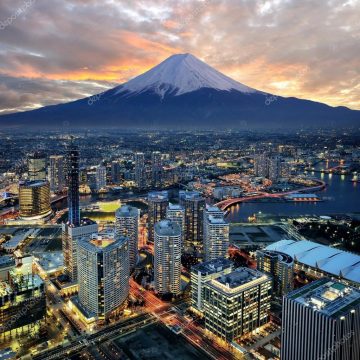
American casino companies are cooling on big investments in Japan’s gaming market, due to new regulations being considered by the Japanese Diet. When Shinzo Abe’s government announces proposals in the next few days, it might determine how Las Vegas Sands and MGM Resorts allocate funds for a Japanese casino project.
On Monday, a key advisory panel held its inaugurual meeting on Japan’s casino rules. Last December, the Japanese Diet legalized casinos with the Integrated Resort Promotion Act.
The IR bill left the particular regulatory framework up to negotiations this year.
Japanese Casino Advisory Panel
Within the next few days, the advisory panel is expected to submit proposals to Prime Minsiter Shinzo Abe. Las Vegas Sands, MGM Resorts, and other potential foreign investors are concerned those proposals will follow “the conservative path”, as Sheldon Adelson’s Las Vegas Review-Journal described the regulations last week.
The concern is Japan’s regulators are going to defeat the purpose of the IR bill by imposing regulations that will make the casino industry less lucrative. Shinzo Abe wants to encourage foreign investments and tourism by legalizing integrated casino-resorts. Such an industry could generate $25 billion a year, while creating tens of thousands of jobs.
Shinzo Abe’s Waning Power
Not everyone in the Liberal Democratic Party supports the idea of a casino industry. In fact, polls show the Japanese people are not that supportive. The IR bill was pushed through by Abe during a time when his approval ratings were around the 60% mark. His coalition government also reached its peak of power from August to December 2016, when he could pass the IR bill without support from the conservative Buddhist-inspired Komeito Party.
Due to recurring corruption scandals, Shinzo Abe’s approval rating has waned to 20%. He might be unable to resist conservative regulations aimed to limit Japanese participation in the casino economy.
Japanese Casino Laws and Regulations
For instance, regulations might bar Japanese residents from accessing ATM machines near casinos. Japanese residents might have to pay $100 to enter the casino, cutting down on mass market gamblers, while allowing Japanese high rollers to gamble.
Another policy would ban the casino credit called “markers”, which are prevalent in American casinos. Yet another law might ban foreign junket operators, the very system used by Macau’s casino industry as a workaround for markers. In Macau, third-party junket operators offer credit to VIP high rollers, while operating private VIP suites inside the casinos themselves.
High Rollers in Japan’s Casinos
If such a policy were in place, both Japanese and foreign high rollers might have a hard time playing on credit — their preferred method. Japanese police have suggested such restrictive bans would open the door to the Japanese underworld, the Yakuza, because VIP gamblers likely would secure credit from black market sources.
Ironically, the potential regulation which particularly concerns Las Vegas Sands and MGM Resorts is a restriction on the size of the resort. One proposal suggests a floor plan limited to 15,000 square feet, a tiny fraction of the size of the biggest Chinese and American integrated casino-resorts.
Alan Feldman Warns of “Slot-Box Mentality”
Alan Feldman of MGM Resorts warned that Japanese lawmakers are too intent on following the Singapore model — right down to the floor plans. Feldman said that model works fine in Singapore, a city of 6,000,000. Japan has metropolitan areas with 30 million to 40 million people, so designs for Singapore simply do not apply.
Feldman said of Japan’s planners, “They’re almost, without intending to, enforcing a slot-box kind of mentality, which is far worse and isn’t going to meet their objectives which relate to tourism and investment.”
“They’re not going to get what they think they’re going to get.”
Sheldon Adelson on Obtaining a Japanese License
No one had such concerns too long ago. Earlier this year, Sheldon Adelson was positioning Las Vegas Sands Corp to secure the best casino license in the Japanese market. Adelson said he would invest $10 billion in a casino in Tokyo, Yokohama, or Osaka.
At the time, Mr. Adelson sounded eager to secure one of those licenses. Back in February 2017, he said in a conference call, “Japan is what everybody is talking about. We have been informed by people in the know in Japan that LVS (or Las Vegas Sands) is by far, not just marginally, but by far ahead of the other competition.”
Osaka Strip to Rival Las Vegas Strip?
Over the months, the praise for Japan continued. In April, the Las Vegas Review-Journal estimated that the strip of casinos in Osaka — the Osaka Strip — could rival the revenues generated on the Las Vegas Strip or Cotai Strip. Even earlier this month, Barron’s
As late as early-June, Barron’s predicted 4 casinos would receive licenses by 2019 and open in 2024. Those four casinos would offer a 20% return on invested capital and a EDITBA comparable to the Singapore casinos.
Barron’s Prediction for Japanese Casinos
Barron’s even cited Morningstar analyst Chelsey Tam‘s prediction that the Japanese casino industry might be a successful rival to Macau’s gaming market.
Tam was quoted saying, “Meanwhile, Morningstar thinks Macau could lose out once these integrated resorts open. It expects casinos to lure gamblers from South Korea and parts of northern China, but thinks Macau will still benefit from growing middle-class incomes in southern China.”
Cautious Optimism about Japan’s Casino Industry
The Japanese Integrated Resort Bill of 2016 brought a lot of optimism to casino developers around the globe. The legislative sessions of 2017 have introduced a more disappointing realism to the process. While US casino developers remain optimistic, they are now cautiously optimistic.
As Alan Feldman of MGM Resorts said, “Any of us who are involved in Japan see the potential. We’ve just got to have legislation that permits that to happen.”















